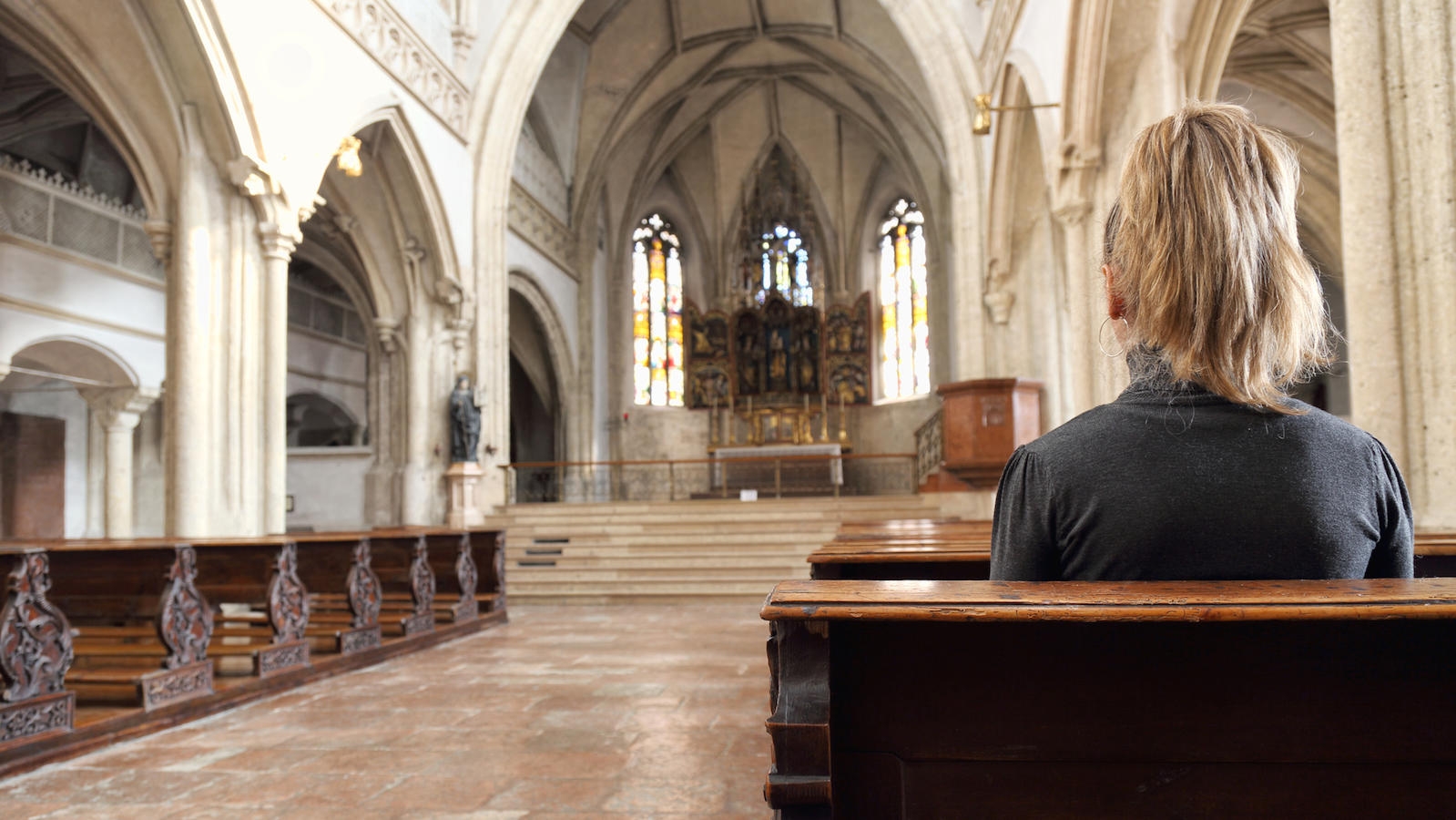Question: My friend invited me to church with him. Can I go if I just sit quietly and don’t pray?
–David, Queens
Answer: I’m impressed that you think you can sit quietly through an entire mass, David. I can hardly sit quietly for a 15-minute mincha (daily afternoon) service!
As with most issues of Jewish law and theology, there is a difference of opinion when it comes to whether or not Jews can enter a church, be it for cultural reasons (for example, to view a famous work of art) or for a religious ceremony (for example, to attend the baptism of a friend’s child). This difference of opinion is predicated on a disagreement about whether Christianity should be considered idolatry.
With your help, My Jewish Learning can provide endless opportunities for learning, connection and discovery.
The Torah and subsequent rabbinic literature are full of prohibitions concerning idolatry and interacting with those who practice idolatry. There is an entire tractate in the Talmud devoted to dealings with idol worshippers, and the general rule there is that one is to avoid interacting with idol worshippers as much as possible. Among other things, this means avoiding trading with them, dressing like them, eating with them, worshipping with or even near them, and entering their places of worship.
Because the Trinity is at the core of Christianity, and because it implies a god that is more than a single entity, there are those who consider Christianity equal to idolatry. Maimonides was one of the many rabbinic authorities to take this view. Much of the contemporary Orthodox community takes a hard line forbidding one from entering Christian churches under most circumstances, based on Maimonides and those who view Christianity the way he did.
However, the 13th-century Catalonian Rabbi Menachem haMeiri argued that Christianity is not a form of idolatry. Meiri viewed Christians as “people whose lives are governed by religion.” Since Christians are encouraged by their religion to exercise free will and live worthy lives, Meiri argued, most of the laws prohibiting idolatry and consorting with idol worshippers do not apply to Christians.
Today, the Conservative Movement uses the Meiri as the base text for allowing Jews to enter into churches in general. Some members of the Conservative Committee on Jewish Law and Standards (CJLS) argue against allowing Jews to attend Christian prayer services in a church, but some allow it. I spoke with Rabbi Ashira Konigsburg, secretary to the CJLS, and she said that she would be careful about what kind of event she would attend in a church. If it was an event where she could expect to be proselytized then she would skip it. But observing the prayer of others is not, she said, prohibited.
You may recall that there was a small uproar in 2009 when Modern Orthodox Rabbi Haskel Lookstein was invited to participate in the National Prayer Service held the day after President Barack Obama’s inauguration. The service was held in an Episcopalian cathedral, and Rabbi Lookstein was castigated by the Rabbinical Council of America (RCA) for his participation, on the grounds that going into a church is halachically (according to Jewish law) prohibited.
Rabbi Lookstein challenged this assertion, noting, among other things, that various chief rabbis of England have attended functions in Westminster Abbey when summoned by the king or queen. Additionally, the chief rabbi of Haifa attended the funeral for Pope John Paul II even though it included a full Mass. These actions, Rabbi Lookstein explained, are sanctioned halachically because the rabbis in question are being asked to represent their communities to the ruling government.
The Shulhan Arukh specifically allows one to interact with and even dress like idolators if one needs to be close to the government (Yoreh Deah 178). Many prominent members of the American Orthodox community did make statements supporting Rabbi Lookstein’s actions. But after this response, Rabbi Basil Herring, executive director of the RCA, said, “Rabbi Lookstein did not represent the Rabbinical Council of America in attending that service and therefore we have no comment on the matter.” And that, as far as I know, is that.
I assume that you won’t be officially representing the Jewish people if you attend Mass with your friend, David, and I also assume the friend who invited you is not the head of state. So Rabbi Lookstein’s argument is probably less helpful to you, but still worth noting.
In any event, it looks like there are halachic sources to support either skipping midnight Mass, or attending, so it’s probably worth some serious and careful consideration before you make a decision. One thing to note is that even the most stringent sources on this matter are most concerned with the appearance of impropriety, and not with the spiritual impact a Christian service would have on a Jew who was in attendance. If you think that going to church would cause you to move away from Judaism, then of course I would avoid it.
Torah
Pronunced: TORE-uh, Origin: Hebrew, the Five Books of Moses.


